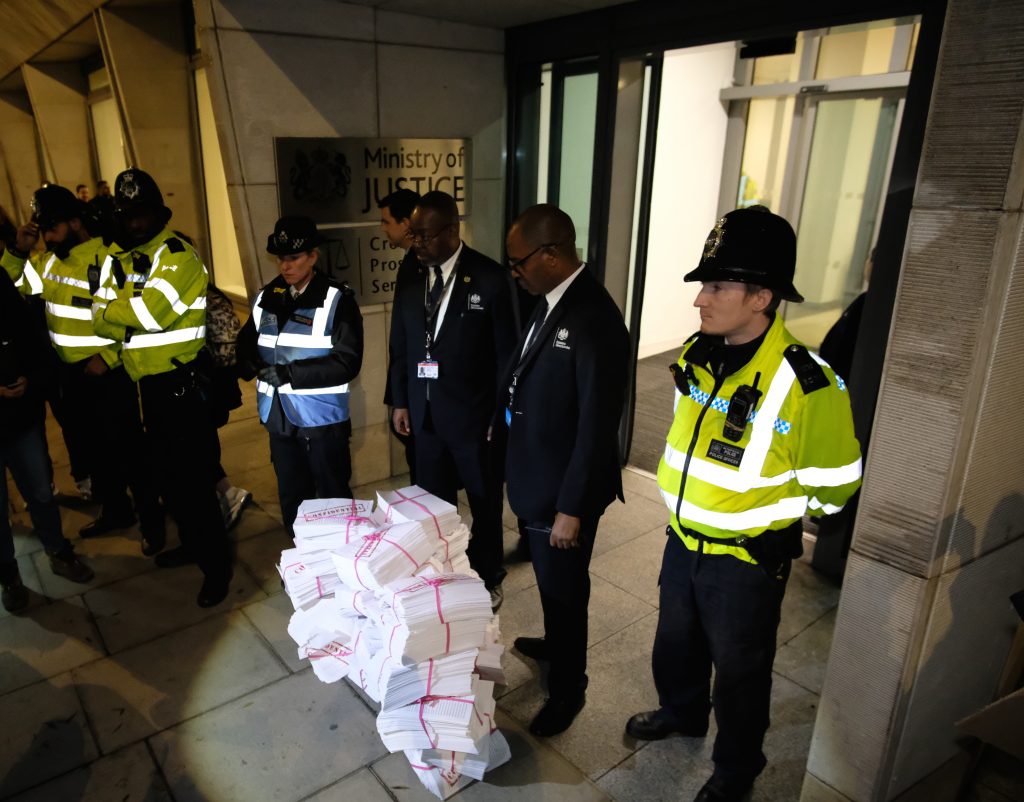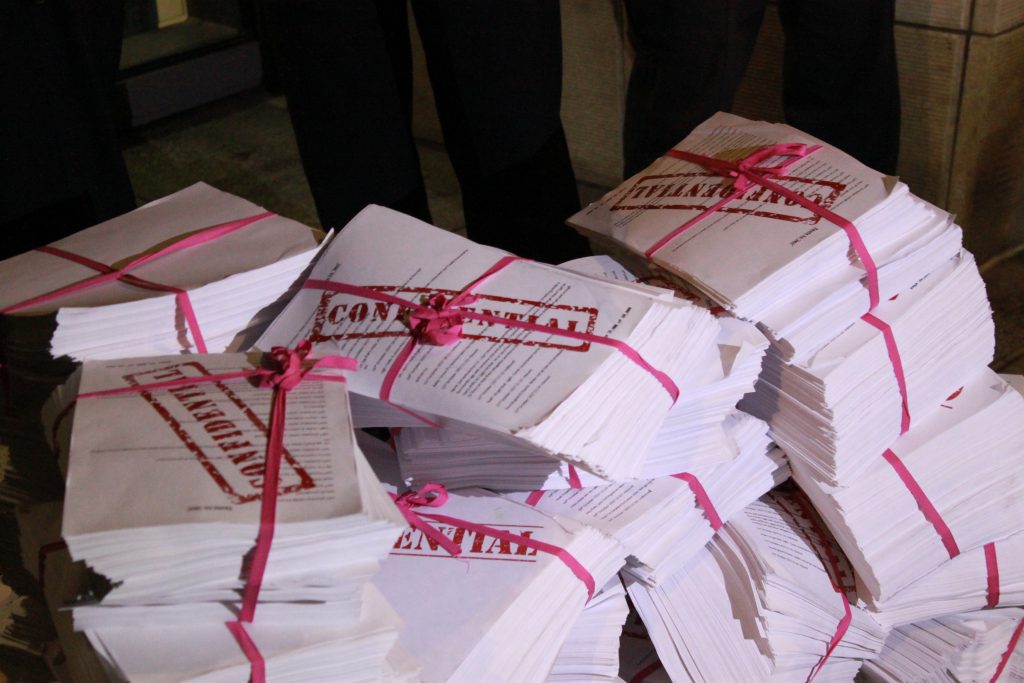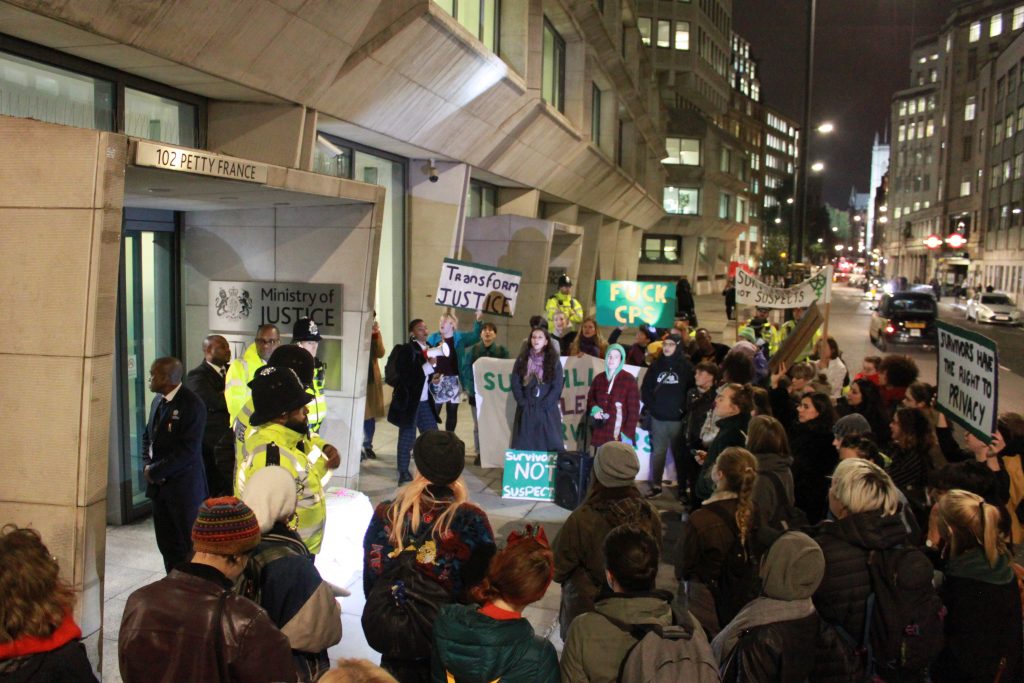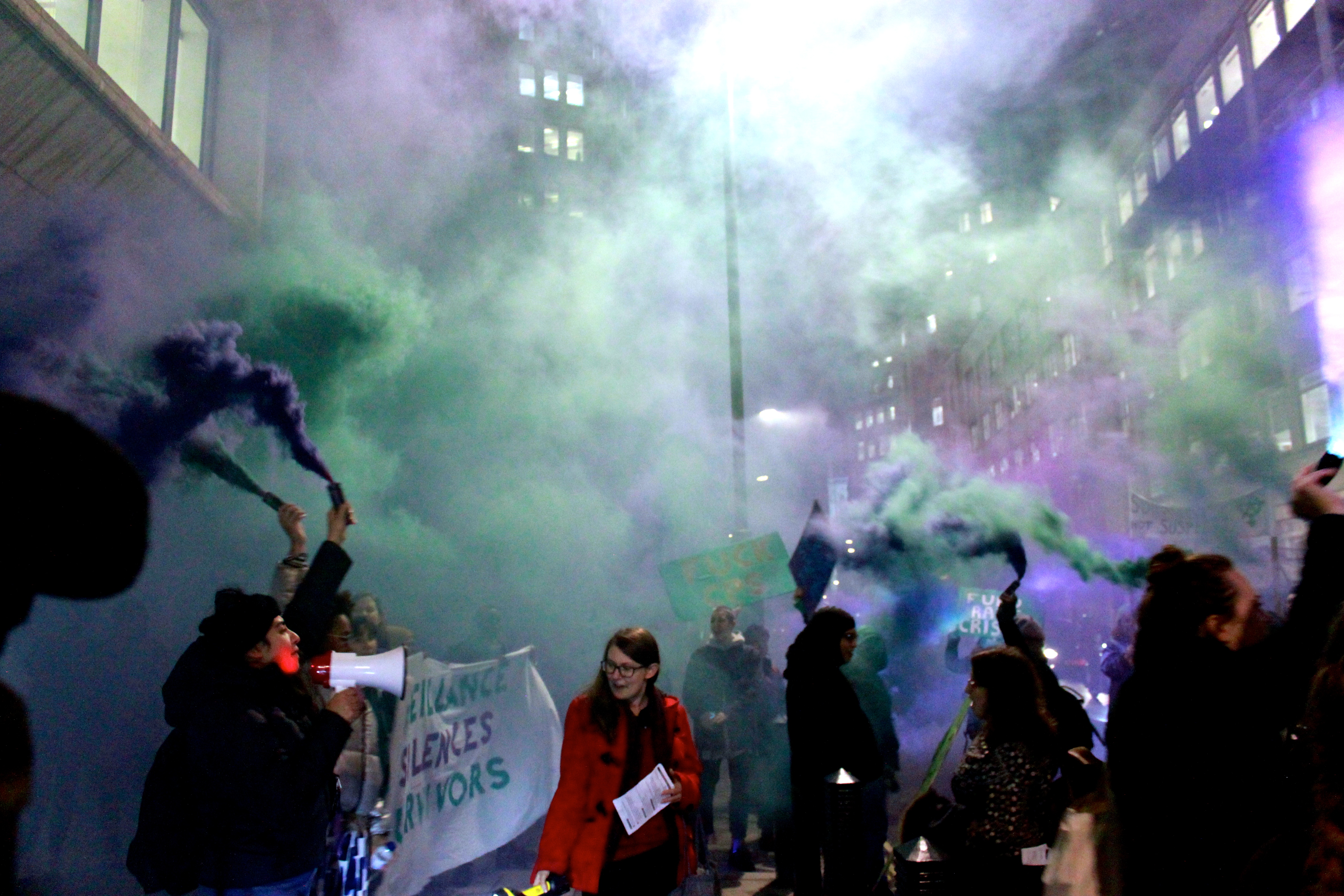Campaigners and protesters delivered 30,000 pieces of paper to the Crown Prosecution Service (CPS) offices. The campaigners are demanding that the CPS halt the requirement that victims of sexual violence hand over all mobile phone data before proceeding with prosecutions.
The 30,000 pieces of paper, piled into bundles, represent the comprehensive mobile phone records that the Crown Prosecution Service demand from sexual assault victims. These records can then be shared with the legal team defending the alleged assailant.
Campaigners argue that this data can be used to put the victim on trial rather than the suspect.
 Credit: Sisters Uncut
Credit: Sisters Uncut
Last month, the Guardian detailed how the Metropolitan Police demands access to social media, web browsing activity and content, instant messages, location data, emails, deleted data, images, videos, audio files, apps, contacts, documents, MMS and SMS messages.
The data can be kept for up to 100 years.
Are Data Privacy Laws and Victims’ Rights Being Undermined?
 Credit: Sisters Uncut
Credit: Sisters Uncut
Campaigners believe that gathering such extensive data from victims of sexual violence is intrusive and may be unlawful.
Victims are asked to sign consent forms permitting access to their data. However, they can be told that their case may not proceed without this consent.
Claire Waxman, London’s Victims’ Commissioner, has expressed her concerns to the Information Commissioner’s Office, which protects information rights and data privacy for individuals. She highlighted how the practice may be unlawful and could deter victims from coming forward.
Waxman told the Guardian, “Victims are very concerned that they are being asked for so much sensitive material – not only their phones, but also past medical history, their social services records and more.”
Waxman also tweeted in support of the protest: “Sisters Uncut ask why CPS demand so much data from those reporting rape? CPS does need information that supports or undermines prosecution but often requests so much personal data that is not reasonable nor proportionate to the case. This must be urgently addressed #victimsrights”
The practice also raises concerns about victims’ rights, with Sisters Uncut noting that victims of crime are not usually required to hand over so much personal data.
It is symptomatic of a broken justice system that victims of sexual violence are automatically subjected to audits of their digital lives when reporting a crime.
We will campaign with partner organisations to change this.
More info in our briefing:https://t.co/JM2qPJf4GL
— Big Brother Watch (@bbw1984) November 2, 2018
Sisters Uncut’s publicity material for the protest asks why expectations are different for victims of sexual violence: “Mobile phone data, social media, medical records, counselling notes, social service reports, mental health records… We wouldn’t expect victims of crime to hand over all their personal data to be trawled through by police. Shared with the perpetrator’s lawyers. And used to undermine them in court. Why are the CPS demanding it from sexual violence survivors?”
Aysha*, 22, a survivor who took part in the protest, said, “As a survivor of rape, I already felt like the perpetrator had taken so much from me. For the CPS to also take my counselling notes and phone records and share them with him as evidence felt like a whole new violation.
“To have them laid out in full in front of a courtroom full of strangers judging you, is beyond explanation. A system that puts survivors through that in order to secure a conviction should not be allowed to call itself a justice system.”
Is the Justice System Failing Victims of Sexual Violence?
 Credit: Sisters Uncut
Credit: Sisters Uncut
Rape Crisis’ 2017 – 2018 report for England and Wales highlights how approximately 85,000 women and 12,000 men are raped in the region every year. These figures translate into roughly 11 rapes every hour.
Nearly half-a-million adults are sexually assaulted in England and Wales each year.
CPS figures show that, although reports of rape have surged, the number of alleged rapists being prosecuted is at its lowest in a decade.
The CPS report Violence Against Women and Girls records how, in 2017-18, the public prosecutions agency charged 849 fewer defendants than in the previous year – a drop of 23.1 per cent.
Following the publication of the CPS report, Sarah Green, co-director of End Violence Against Women coalition told the Guardian, “This is a collapse in rape justice and we need to know why this has happened and what those in charge of the justice system are going to do about it.”
* name has been changed to protect the person’s identity







